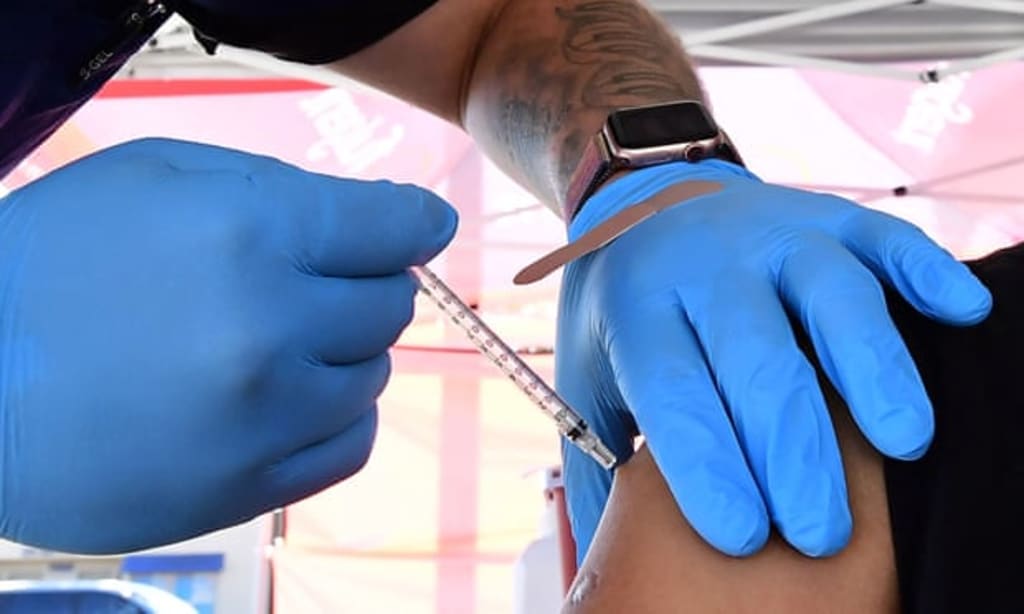Testing of sewage water gives indications about Omicron's proliferation across the United States.
California, Idaho, Colorado, and a few Texas localities are testing wastewater for the presence of Omicron in their areas.

Scientists have been monitoring the nation's wastewater to perform early detection of the virus as the United States continues to watch the spread of the Omicron Covid-19 subtype. A group of California researchers stated last week that they had discovered signs of the variation in sewage treatment facilities across the state, implying that Omicron is already prevalent in several locations.
The Sewer Coronavirus Alert Network (SCAN), a cooperation between municipal authorities and scientists at institutions including Stanford, discovered signs of the Omicron strain in wastewater in Sacramento and Merced.
"Even though we haven't had any clinical cases reported in those counties yet, this is highly suggestive that the virus is circulating there," Dr Erica Pan, the California state epidemiology, said in a presentation to the California Medical Association earlier this week. "Omicron is absolutely being seen across the state," she noted.
The first verified case of Omicron was discovered in California last week, and officials throughout the country are terrified that the new strain may spread like it did in South Africa and the United Kingdom. Wastewater testing has been used in a number of nations and US states as an early indicator of whether the variation is present in communities.
On Tuesday, Colorado health authorities said that researchers had discovered signs of the Omicron variation in wastewater, indicating that there were likely several cases of the variant in the state.
The city of Houston's health department said the same day that testing had found the Omicron type at eight wastewater treatment facilities around the city, accounting for nearly a fifth of the city's total. In response to worries about Omicron, Idaho's Department of Health said on Thursday that it will be extending its testing program, claiming that it would allow the state to have earlier indicators of new patterns in coronavirus transmission.
Evidence of the Omicron variation was found in wastewater samples taken as early as November 25 in California, officials said, a day before the World Health Organization recognized it and classified it a variant of concern.
Last year, wastewater testing for Covid-19 became a useful early warning system, providing officials a head start before hospitalizations skyrocketed, without depending on people to take Covid-19 tests. Scientists can easily screen for coronavirus in feces by sending vials of sample wastewater to sewage treatment plants for testing.
Although wastewater testing cannot validate specific instances or offer more precise information on how outbreaks happened, experts claim that the findings are swift and that there is always a steady supply of samples for testing.
Stanford professor Alexandra Boehm told NPR that scientists looked for the variation's unique mutations that separate it from other varieties of Covid -19, like as the now-dominant Delta version, while testing particularly for Omicron. The Sewer Coronavirus Alert Network released its findings after two rounds of testing over the previous two weeks.
Much is unknown about the Omicron variety and how it could affect the pandemic's path. Early signs indicate that Omicron might spread quickly, while experts in South Africa believe the variety is more transmissible but produces less severe sickness than other strains of the virus.
Existing vaccines are being tested in the lab for their effectiveness against Omicron, with Pfizer and BioNTech reporting this week that tests of blood samples revealed that two doses of their vaccine were less effective against the variant, though receiving a third booster shot provided significant protection.
Travel prohibitions from South Africa and other southern African nations, according to scientists, are ineffectual in reducing disease transmission, especially given proof from wastewater that Omicron had reached the United States before the government established travel limits.






Comments
There are no comments for this story
Be the first to respond and start the conversation.